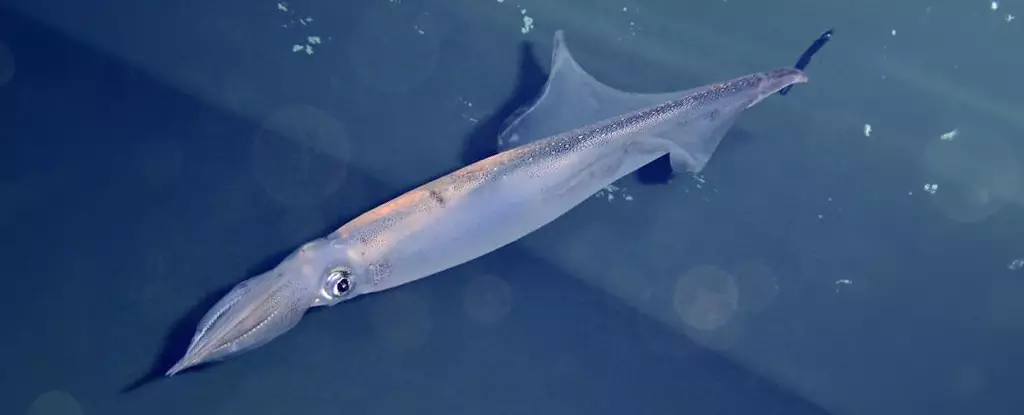When it comes to the world of astrology and horoscopes, many scientifically-minded individuals are quick to dismiss the idea that the positions of stars and planets at the time of their birth could influence their future. However, a recent study conducted in Japan sheds light on the influence of birthdate on the mating tactics of Japanese spear squid (Heterololigo bleekeri). Researchers from the University of Tokyo, led by marine biologist Shota Hosono, discovered a fascinating correlation between the month in which male squid hatch and their mating behavior.
The study found that male squid hatching early in the breeding season, which spans from early April to mid-July, tended to grow larger by mating time. As a result, these larger individuals became what are known as consorts – aggressive males that fight off rivals to mate with a female and guard her while she lays her eggs. On the other hand, squid that hatched later in the season, between early June and mid-August, were typically smaller and adopted a different tactic. These smaller individuals became “sneakers,” depositing their sperm covertly on the outside of a female in the hopes of fertilizing her eggs without engaging in direct competition.
The concept of the relative age effect, or “birthdate hypothesis,” has been well-documented in various species, including humans, where individuals born earlier in the year may have advantages in certain aspects of life. However, this study marks the first time that such a phenomenon has been observed in aquatic invertebrates. The researchers studied a total of 201 male squids and 68 mature females to determine how birthdate influences mating tactics in this species.
The researchers noted that the mating tactics observed in male H. bleekeri were not simply inherited from their paternal line. Instead, a combination of physical, biological, and environmental factors at birth seemed to play a significant role in determining their behavior. Female squids were found to store sperm from both consort and sneaker males, using a mixture of sources to fertilize their eggs during spawning events. This genetic variation stemming from alternative reproductive tactics can influence mating behaviors in various animal species.
The study also highlighted the sensitivity of squid to environmental conditions, particularly water temperature. Extreme events such as marine heatwaves during the hatching season could have a significant impact on the mature body size of squid and, subsequently, their mating tactics. Understanding how environmental factors influence mating behaviors in squid is crucial for conservation efforts and sustainable commercial fishing practices.
The research conducted by Hosono and colleagues provides valuable insights into the complex interplay between genetics, environment, and behavior in the Japanese spear squid population. By uncovering the influence of birthdate on mating tactics, the study opens up new avenues for further exploration into the fascinating world of animal behavior and evolutionary biology.


Leave a Reply